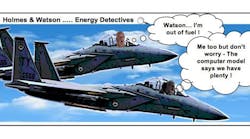Watson: I recently read a book you recommended to me; Tracy Kidder’s “Mountains Beyond Mountains”. It’s about Dr. Paul Farmer, a Harvard professor of both Medicine and Medical Anthropology, a man with an M.D. and a PhD who spent eight months every year, without pay, treating patients in small villages in Haiti under the most difficult living and working circumstances imaginable. As a result of his field experience, this brilliant Harvard professor made discoveries that may have almost single-handedly stopped a world-wide pandemic of drug-resistant Tuberculosis.
Holmes: I’m glad you enjoyed it. It truly is one of the most amazing books I have ever read. When I read it several quotes jumped out at me:
“Farmer told me that he found his life’s work not in books or in theories but mainly through experiencing Haiti. “I would read stuff from scholarly texts and know they were wrong.” …the circumstance of Haiti suited Farmer temperamentally because, for all his scholarship and interest in theories, his strongest impulses were pragmatic. He only seemed like a nerd. He would tell me years later, with undeniable accuracy, “I’m an action kind of guy.”(1) - Tracy Kidder
Watson: Since you have spent much of your career working in the field with the actual energy systems I can see why you liked those quotes.
Holmes: Even though I am not a brilliant physician saving the world, I am a nerd and Dr. Farmer’s story contains strong lessons that relate to my life. I think all energy professionals could learn about the roles of both the “Theory” and the “Real World” from him.
When I started my own business and began contracting to serve as Building Energy Manager for a number of facilities I took a position as Assistant Professor in the Purdue School of Engineering and Technology to pay the bills.
For six years I worked 80 hour weeks on a regular basis. During the afternoons and evenings I was teaching Thermodynamics, Fluids, Thermal Systems, Power Systems, HVAC Design and Energy Conservation classes. During the mornings, sometimes at 5 AM and many nights after my last class ended at 10:30, I was out in buildings; operating and controlling them, maintaining comfort and managing all maintenance for the energy systems.
Watson: How did the “Theory” and the “Real World” compare?
Holmes: While I was teaching the “Theory” in the classroom, how the energy systems should be designed and operated, I was seeing something completely different in the field, the buildings. There was often little similarity between the “Theory” and the “Real-World”.
Watson: What do people in the “Real World” think about “Theory”?
Holmes: The best answer to that question came from Randy, the Head of Maintenance for a large school district where we were working. He told me,
“That theory don’t work out here in the real world. You know, it’s just a theory. It might be right and it might be wrong. It’s just a theory.”
Watson: What do people in the world of “Theory” think about the “Real World”?
Holmes: Some think that once the energy audit, calculations and model are done, the problem is essentially solved. They may not understand the value of operating and maintaining equipment at peak efficicncy on a day-to-day basis.
Perhaps Kevin M. Vaughn, P.E. said it best more than 25 years ago in the September 1987 issue of Heating/Piping/Air Conditioning,
“The energy usage of a facility is at least as sensitive to operating strategy and operator training as it is to equipment design and installation.”
Watson: So a lot of problems you have encountered have been due to the gap between the “Theory”, from those in engineering offices and the “Real World” from those working with the energy systems on a daily basis?
Holmes: You’ve got it Watson. I have spent a lot of hours both designing systems and trying to make those designed by others work, to operate efficiently while satisfying the actual building needs. I have walked on both sides of the fence and believe me, the skill sets required are very different.
Those on the “Theory” side need to understand that their models and calculations don’t necessarily reflect what actually happens in the “Real World”. They may be able to model the systems but they can't model the people who operate and maintain them.
Watson: What about the “Real World” side?
Holmes: Most technicians are trained to install, operate or repair a specific piece of equipment or system and just keep it running. They must have a strong incentive, specialized training and actual, continuous, monitored data to insure that energy systems are operated as efficiently as possible on a continuing basis.
Watson: And it takes people from both the world of “Theory” and the “Real World” working together to achieve success.
Holmes: Absolutely! That is why airplanes have instruments, highly trained pilots and rigorous maintenance standards in addition to designers and builders. The building industry needs to follow suit.
Tell us about your experiences, both good and bad with energy professionals, what has worked and what hasn’t. Send us your comments, thoughts and suggestions on how to improve our profession so we can all continue to learn from each other. Thanks – Holmes & Watson.
(1) Kidder, Tracy, Mountains Beyond Mountains, Random House, 2003
